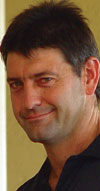
Editor’s note: For those who read the article entitled ‘Set-top box manufacture process gains momentum’ in the 22 August issue of Dataweek, feel free to skip to ‘The pressure is on’ below, as the first part of this article is a repeat of the aforementioned, duplicated here for background and for the benefit of those who missed it the first time around.
The ball is finally rolling on the manufacture of digital television set-top boxes (STB) in South Africa. Following a lengthy investigatory period and unexpected delays, tender documents are now available from the Department of Communications (DoC).
According to spokesperson for the DoC, Siya Qoza, the Department has set 31 August 2012 as the deadline for prospective STB manufacturers to submit their tender documents to the DoC.
“Following these submissions, a team will review all documentation and, based on certain criteria around quality of products, available manufacturing facilities and capacities, we will make a decision on the qualifying companies. We are keen to identify new players in the market and, in line with the Government’s mandate, we will give preference to those companies that are BBBEE compliant,” said Qoza.
“It is contingent upon the potential bidders to prove their manufacturing competency levels.” he added.
According to Qoza, it will be necessary for all TV owners to have an STB in the future. Progress stops for nobody and with a deadline for the conclusion of the switchover from analog to digital set for 17 June 2015, the race is on to supply an estimated 5 million households with an STB. The switchover process will be in full swing by December 2012.
Qoza explained that the basic STBs will retail for approximately R700. “We are working together with other Government agencies and bodies to ascertain those households that qualify as ‘needy’. Once identified, these households will receive a 70% Government subsidy towards the purchase of their STB. The distribution of these STBs will take place through the South African Post Office network.
“Other people who are not identified as ‘needy’ will be able to purchase their STB off the shelves of major chain stores and outlets,” Qoza concluded.
Tender documents can be obtained at the DoC offices at 1166 Park Street, Block F, 2nd floor, Hatfield, Pretoria. Compliance information can be downloaded from the DoC website: www.doc.gov.za/index.php?option=com_content&view=article&id=100&Itemid=74.
The pressure is on
Dataweek spoke to three industry players about the game plan for the coming 33 months leading up to the analog switch-off. The most pressing issue is whether all of the apparent 40-plus bidders are geared up to tackle a project of this complexity and magnitude.
All three respondents believe that there are approximately five or six manufacturers who could reasonably cope with the supply of 3 million to 5 million set-top boxes. They all also agreed that the deadline of 17 June 2015 is achievable, but conditional upon a non-delayed decision-making process from the DoC and the prompt mobilisation of manufacturers in order to procure the necessary materials.
Mike Goodyer, owner and CEO of Microtronix Manufacturing, said that without direct access to a suitably equipped factory, nobody can be considered a serious contender.

Frank Ellis, sales manager at CZ Electronics, agreed and added that tenderers needed to be able to provide credentials in terms of their physical capabilities to manufacture high-volume goods. “These products require the ability to place fine-pitched components, something which not many companies in South Africa can competently handle,” he stated.
Rodger Warren, managing director of Altech UEC South Africa, said that there is a definite requirement for proposed manufacturers to understand the complexity of STBs. “They will also need a reliable supply chain, digital video broadcast technology experience and access to the requisite testing equipment,” he said. “The investment in surface-mount equipment alone is enough to deter backroom manufacturers.”

The DoC’s insistence on BBBEE involvement should not be a problem for the country’s leading manufacturers, since each of these companies is already BBBEE compliant.
The question remains though whether the DoC will promote partnerships between emerging contractors and the well-established manufacturers. This seems highly likely, since many of these smaller players have no facilities to undertake the manufacturing. In addition, a number of them have little or no expertise or experience in the field.
According to Goodyer, the technical requirements for the STB project are massive. “A fully-fledged and equipped manufacturing facility is the starting point,” he said. “Bear in mind that this is not a simple pick-and-place requirement, but rather requires a higher level of expertise and skill. In addition, experience in the manufacture of televisions is a definite plus point for bidders, since the technology is very synergistic.”
South Africa has adopted the international standard DVB-T2 to ensure full compliance and compatibility. “However, South Africa is writing software endemic to the needs of the local market,” said Ellis.
“Naturally, any potential bidders should have both engineering capacity and capabilities. This is a golden opportunity for local manufacturers to carve a niche for themselves, but this cannot be at the expense of quality and output,” added Warren.
One size fits all?
Depending on the vagaries of the market, the retail STBs may have tangible differences to the basic subsidised versions. These versions will also be available to the open market and so too will a number of more sophisticated versions.
The products could incorporate enhanced stereo, improved amplifiers, PVRs or dual view as demanded by the market. The physical casing could also vary from manufacturer to manufacturer.
One thing that is certain though, is that unless South Africa suddenly experiences a miraculous reduction in the cost of manufacturing components locally, the bulk of components will be imported. Warren said that the supply of casings, packaging and printed manuals could definitely be serviced by the local market.
“I think that initially the fortuitous route to follow would be the importation of entire STB kits,” stated Goodyer. “Once manufacturers are comfortable with the process, they can then start replacing peripheral items with locally made ones. This creates further job opportunities for the South African market.”
Sustainable market?
The job creation evolving out of such a high-volume venture is very reassuring. However, what happens when the predicted target is met in 2015? Will we see major job losses in the market as demand rapidly wanes?
“It is important to determine upfront whether one is operating a sustainable business,” said Warren. “Those companies that have been in existence for many years and who have carefully planned for the advent of STB manufacture, will be in a much more favourable position at the end of the supply programme. STB manufacture is very complementary to the products we currently manufacture, so we will be able to absorb any decrease in volume quite readily.”
Ellis believes that although the current stipulated goal will be reached in 2015, the demand for STBs will continue as new households purchase televisions. “In addition, the rest of Africa is required to migrate to digital so there is an untapped market there,” he pointed out.
Warren agreed and added that the componentry could also be applied to other products required in South Africa: “We could supply semi knockdown kits to other Pan-African countries to ensure that we do not infringe any local legislation. It would behoove any local manufacturer to market their capabilities to the rest of the continent in order to create long-term sustainability.”
Government recently imposed certain import tariffs on fully assembled televisions, which led to a massive boom in the local printed circuit board assembly sector.
Goodyer believes that it is imperative that Government continues along this line with respect to the STB products, to discourage the importation of STBs. “This initiative is centred around providing the local market with an opportunity to grow and prosper. This is only possible if we are not expected to compete with cheap imports.
“The existing capabilities in South Africa must be explored and utilised carefully in order for the market to achieve maximum benefit. The DoC should also be cautious in appointing too many contractors, who would ultimately dilute the market share, resulting in severe unemployment at the end of the contractual process,” Goodyer added.
Conclusion
It would seem that, provided the DoC makes the appointments quickly and expeditiously, there will be no South African TV-owning households without a locally manufactured STB by mid-2015. However, if the process is delayed, the unthinkable could happen: Government could be forced to import STBs.
The industry, on the other hand, has the responsibility to mobilise its skills and facilities without delay to ensure that the stipulated targets are met.
| Tel: | +27 11 543 5800 |
| Email: | [email protected] |
| www: | www.technews.co.za |
| Articles: | More information and articles about Technews Publishing |

© Technews Publishing (Pty) Ltd | All Rights Reserved